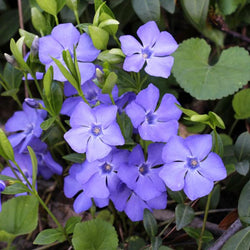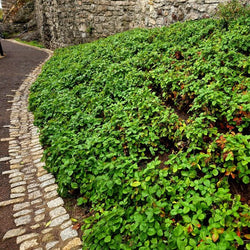Gardening and landscaping are terms often used interchangeably. Still, they each hold distinct meanings and encompass different activities, techniques, and end goals. Understanding the difference between gardening and landscaping can help you decide which pursuit best suits your needs, whether you're looking to beautify your property, grow your food, or enjoy the great outdoors. Let's delve into the specifics of each and explore how they contrast and complement one another.
Gardening: A Closer Connection with Plants
Gardening cultivates flowers, vegetables, fruits, herbs, and ornamental plants. It emphasizes the care and nurturing of these plants to ensure their health and productivity. Gardening can occur in various settings, from small urban balconies with container gardens to expansive rural properties with vegetable plots and flower beds.
Key Aspects of Gardening:
1. Focus on Plant Care:
- Gardening revolves around the detailed care of individual plants. Gardeners spend time selecting suitable species for their climate, preparing the soil, planting seeds or seedlings, watering, weeding, pruning, and protecting plants from pests and diseases.
2. Variety and Specialization:
- Much of gardening involves specialization in different types of plants, such as vegetables, flowers, herbs, or succulents. Gardeners often develop expertise in specific plant varieties and invest in learning about their particular needs and preferences.
3. Seasonal Activities:
- Gardening is typically more seasonal than landscaping. Activities such as planting, transplanting, and harvesting are often dictated by the changing seasons, and gardeners must adapt their efforts to the natural growing cycles of their plants.
4. Personal Fulfillment:
- Gardening is often seen as a therapeutic and rewarding hobby. Many garden for personal satisfaction, the joy of seeing their plants grow and thrive, and the benefits of fresh produce and beautiful flowers.
Landscaping: Shaping the Outdoor Environment
Landscaping, on the other hand, involves the design and construction of outdoor spaces to enhance their aesthetic and functional appeal. While gardening focuses primarily on plants, landscaping takes a broader approach, incorporating lawns, trees, shrubs, hardscapes (patios, pathways, retaining walls), water features, and outdoor structures.
Key Aspects of Landscaping:
1. Overall Design:
- Landscaping is concerned with an outdoor space's overall design and layout. Landscape architects and designers create plans that consider the spatial arrangement, balance, and harmony of various elements—both natural and man-made—to achieve a cohesive and visually appealing environment.
2. Structural Elements:
- Landscaping often incorporates hardscape elements like walkways, patios, decks, fences, and pergolas. These structures add functionality, define spaces, and may be used to create focal points within the landscape.
3. Ecological Considerations:
- Modern landscaping increasingly incorporates ecological and sustainable practices. This might include using native plants, rainwater harvesting systems, as well as eco-friendly materials to minimize environmental impact.
4. Professional Expertise:
- While some homeowners take on landscaping projects themselves, many larger-scale or more complex designs require the expertise of professional landscapers or landscape architects. These professionals bring a deep understanding of design principles, construction techniques, and plant knowledge to create well-rounded landscapes.
Complementary and Contrasting Elements
While gardening and landscaping have distinct focuses, they often complement one another. For instance, a well-designed landscape plan usually includes carefully selected plants that require ongoing gardening efforts to maintain their health and beauty. Similarly, a beautiful garden can be enhanced by thoughtful landscaping that provides an attractive and functional setting for the plants.
Differences in Scope and Scale:
- One of the primary differences between gardening and landscaping is the scope and scale of each activity. Gardening can be as small-scale as tending to a few pots on a balcony. In contrast, landscaping often involves comprehensive planning and the transformation of larger outdoor spaces. Landscaping projects often include designing an entire backyard or front yard or creating public parks and commercial outdoor spaces.
Purpose and Objectives:
- The objectives of gardening and landscaping can also differ. Gardening is typically more focused on the personal joy of plant cultivation, creating a productive vegetable garden, or maintaining a beautiful flower bed. Landscaping, however, aims to enhance an outdoor space's overall aesthetics, functionality, and value, often incorporating various elements to create a unified look.
Shared Benefits:
- Despite their differences, both gardening and landscaping offer numerous benefits. They both contribute to the beauty and health of the environment, provide opportunities for physical activity and stress reduction, and can enhance property values. Moreover, both activities allow individuals to connect with nature and gain a deeper appreciation for the natural world.
While gardening and landscaping are distinct activities, they are inherently interconnected. Gardening focuses on cultivating and caring for plants, providing a hands-on, nurturing experience. On the other hand, landscaping encompasses the broader design and creation of outdoor spaces, incorporating various natural and structural elements to enhance functionality and visual appeal.
Whether you are a budding gardener looking to cultivate a few plants or someone interested in transforming an entire outdoor area, understanding the differences and synergies between gardening and landscaping will help you achieve your goals. Both pursuits offer rewarding experiences and contribute to the beauty and sustainability of our environments, making them well worth the effort.







